Narcotics Defense
Don’t Fight Drug Charges In Georgia Alone
Penalties for drug crimes in Georgia can be very harsh, which is why it’s vital to retain the services of an experienced drug crimes defense attorney. Gregory Chancy and his team of attorneys at The Law Office of Gregory Chancy provides a robust defense strategy for misdemeanor and felony drug crimes including simple possession, possession with intent to distribute, narcotics trafficking, and illegal drug manufacturing.
The severity of your drug charge depends on the type of drug found, the weight of the drug, and the circumstances of your arrest. Many counties in Georgia pool resources together to form Multi Agency Narcotics Squads (M.A.N.S. Units), these agencies are highly trained and funded to arrest and charge people with drug crimes.
Our legal team will carefully investigate how the evidence was obtained in your case. In many instances, drugs are found by law enforcement during an illegal search. I may also explore whether the drugs were planted or if you were a victim of entrapment. In addition, I may challenge whether you had actual possession of the drugs at the time of your arrest. All of these factors are placed under scrutiny by your The Law Office of Gregory Chancy Attorney to maximize your chances at a successful outcome for your case.
Drug Charges In Georgia
In Georgia, drug allegations range from misdemeanor to felony charges. Generally the category of narcotic that is found and the amount of the controlled substance or illegal narcotics will determine the charge of arrest. The Georgia Controlled Substances Act (O.C.G.A. § 16-13) breaks drug charges down into 5 distinct categories that are predicated by the action or circumstance for the arrest:
- Purchase: A person caught buying illegal drugs or controlled substances may be arrested for drug possession. The schedule and quantity of drugs will determine if it is a felony or misdemeanor charge.
- Possession: Any person caught with illegal drugs or controlled substances on their person or in their possession may be charged with drug possession.
- Distribution: Georgia drug trafficking charges are based upon the quantity of narcotics or controlled substances found and will usually accompany a charge of intent to distribute, sale, manufacture, or transportation and delivery of illegal drugs.
- Manufacture: Any person or persons found to be in production, preparation, propagation, compounding, conversion, or processing of a controlled substance may be charged with drug manufacturing.
- Sale: The exchange of money or goods for illicit drugs or controlled substances from a non-licensed vendor.
Drug Possession
Georgia drug possession laws are some of the strictest in the country. Drug possession is a serious crime no matter what the circumstances are. A simple misunderstanding or seemingly innocent favor to a friend can land you in a whirlwind of legal struggle where you are fighting for your freedom. There are many agencies that come into play when you enter the narcotics world both on the legal and illegal side of the business. DTOs or Drug Trafficking Organizations are the most notorious high level manufacturing and distribution targets of Federal Agencies such as the DEA and the FBI but those and other lower level narcotics cells are investigated and prosecuted by state and local drug and narcotics task forces. When it comes to narcotics crimes there are many factors that come into play and a good narcotics defense attorney will know how to explore all of your available options.
Georgia's Controlled Substance Classification
Federal and state drug trafficking laws divide controlled substances into the following five schedules:
Schedule I: This class of controlled substances has the highest potential for abuse and does not have any medical value. A few examples of Schedule I drugs are heroin, marijuana, methaqualone, peyote, and lysergic acid diethylamide (LSD).
Schedule II: Schedule II drugs have a high potential for abuse and have a high potential for physical and psychological dependence. Schedule II drugs have some accepted medical uses and may be used under strict restrictions. Examples of Schedule II drugs include cocaine, methamphetamine, meperidine (Demerol), methadone, oxycodone (OxyContin), fentanyl, Adderall, Ritalin, and Dexedrine.
Schedule III: Drugs that fall into the Schedule III classification have an accepted medical use. These drugs have a lower chance of misuse and have a low to moderate probability of creating physical or psychological dependence. Some examples of Schedule III drugs include Tylenol with codeine), anabolic steroids, ketamine, and testosterone.
Schedule IV: Schedule IV controlled substances have a very low probability of being abused, have limited potential for dependence, and are used in medical treatment. A few examples are Soma, Xanax, Darvon, Valium, Darvocet, Ativan, Ambien, Talwin, and Tramadol.
Schedule V: These drugs have an accepted medical use, have the lowest potential for misuse, and have limited potential for dependence. A few examples of Schedule V drugs include Robitussin AC, Motofen, Lomotil, and Parepectolin.
We have extensive experience fighting drug charges and winning
To safeguard against heavy-handed punishment, your Criminal Defense Lawyer may negotiate alternative sentencing options with the prosecution such as a drug treatment program instead of jail time. Criminal Defense Attorney will always present EVERY offer made to you so that you are informed of all of your options. We are your advisors and best legal defense!
At The Law Office of Gregory Chancy we service Northern Metro Atlanta including Bartow, Cobb, Cherokee, Fulton, Paulding County. We have strong relationships with local law enforcement and prosecutors which means the best possible results for our clients!
-
Is marijuana legal in GA?
Marijuana use for specific medicinal purposes has been legalized in Georgia. Also, only marijuana oil is legalized for medical use, and only up to 20 ml may be purchased at one time.
-
What is a narcotic?
A narcotic is any drug or chemical substance or chemical compound that alters perception, mood or brain function. Narcotics may be banned which makes possession or use illegal; or their use may be regulated and restricted for medical purposes only.
-
Is marijuana a narcotic?
Yes, marijuana is considered a narcotic primarily because of the presence of a chemical compound referred to as THC. THC is a mind-altering substance that enhances the perceptioin of pleasure and dulls the perception of pain. Thus, marijuana used to be a controlled substance because of its narcotic properties. Recently, however, the medical uses of marijuana has resulted in the de-criminalization of use and possession of certain forms of marijuana.
Fluent in Spanish, French, and Portuguese
Disclaimer: The information you obtain at this site is not, nor is it intended to be, legal advice. You should consult an attorney for advice regarding your individual situation. We invite you to contact us and welcome your calls, letters and electronic mail. Contacting us does not create an attorney-client relationship. Please do not send any confidential information to us until such time as an attorney-client relationship has been established.






